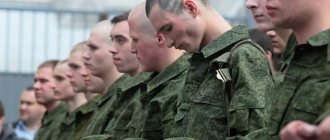MIP online legal encyclopedia - » Criminal cases - comments of a Federal Judge / MIP Law Group » Punishment » Restriction of freedom - comments of a Federal Judge / MIP Law Group
Sign up for a consultation with the head of the criminal department. We specialize in Article 53 of the Criminal Code of the Russian Federation. Professional explanations. Unlimited consultation time
Restriction of freedom – free answers from lawyers online
Restriction of freedom is one of many criminal penalties, the existence of which is intended to ensure the principle of individualization of sentencing, taking into account the nature and severity of the crime, the identity of the perpetrator and other circumstances, and to prevent further criminalization of the individual.
Types of restrictions when imposing punishment in the form of restriction of freedom
In accordance with Art. 53 of the Criminal Code of the Russian Federation, restriction of freedom consists of the court establishing the following restrictions for the convicted person:
- do not leave your place of permanent residence (stay) at a certain time of the day,
- not to visit certain places located within the territory of the relevant municipality,
- do not travel outside the territory of the relevant municipality,
- not to visit places of mass and other events and not to participate in these events,
- not to change the place of residence or stay, place of work and (or) study without the consent of the specialized state body supervising the serving of sentences by convicts in the form of restriction of freedom, in cases provided for by the legislation of the Russian Federation.
When establishing restrictions on visiting certain places, the court should indicate the characteristics of such places (for example, public catering places where the consumption of alcoholic beverages is permitted, children's institutions).
A restriction in the form of a ban on visiting places where mass events are held and participating in them may apply to all mass events, as well as those of them, visiting and participating in which, in the opinion of the court, will interfere with the achievement of the goals of punishment. For example, the following events are popular
- socio-political (meetings, rallies, street processions, demonstrations, etc.);
- cultural and entertainment (festivals, professional holidays, folk festivals, etc.);
- sports (Olympiads, Spartakiads, Universiade, competitions in various sports, etc.).
Deadlines
This type of punishment is assigned for crimes of minor and medium gravity , and the length of the sentence depends on cumulative factors, which include the type of crime committed, the person’s involvement in it, his characteristics, whether he has previously committed criminal acts, if children, family, etc.
As in all cases, both aggravating and mitigating circumstances .
Calculation of terms of restriction of freedom imposed as primary and additional punishment
Restriction of freedom can be imposed both as a primary and as an additional punishment.
The term of restriction of freedom imposed as the main type of punishment is calculated from the day the convicted person is registered with the penitentiary inspectorate. The period of restriction of freedom assigned as the main type of punishment includes the time the convicted person is held in custody as a preventive measure at the rate of one day in custody for two days of restriction of freedom.
When imposing restriction of freedom as an additional type of punishment to forced labor or imprisonment, as well as when replacing the unserved part of a sentence of imprisonment with restriction of freedom, the term is calculated from the day the convict is released from the correctional institution.
The period of restriction of freedom does not include the time of unauthorized absence of the convicted person from the place of residence for more than one day without good reason (Part 3 of Article 49 of the Penal Code of the Russian Federation).
The difference between restriction of freedom and imprisonment
The distinctive features of the analyzed types of punishment are:
- both punishments according to the Criminal Code of the Russian Federation act as independent independent measures of criminal legal influence on persons who committed criminal offenses;
- Both punishments, despite the fact that they relate to the freedom of the convicted person, however, the degree of that freedom in the event of its deprivation is literally reduced to a minimum, since the convicted person is completely isolated from the outside world and society by fences and the territory of the penitentiary institution, to which he is transferred for the entire term appointed by the court . The limitation lies in the conditional isolation of the convicted person, which is limited to the place of residence due to prohibitions on movement outside it, both on a territorial basis and on a temporary basis and the imposition of additional responsibilities.
- Isolation within the framework of imprisonment is ensured by special measures. institutions of the country's penitentiary system (prisons, colonies, medical institutions), while restriction of freedom does not require placement in any specially designated institutions, but is served at home under the supervision of the territorial correctional institution.
- The existence of restrictions on freedom in the sanctions of articles of the Criminal Code in domestic criminal law is relatively short-lived and starts in 2010. Imprisonment has been used for centuries as a criminal law measure, and is not a novelty for the current Russian code.
- The category of crimes for which imprisonment is imposed are grave and especially grave; restriction of liberty is provided for crimes that the law regards as less grave.
- Imprisonment within the framework of imprisonment can reach 20 years, and if there is a combination of sentences, then even 30 years, while the limitation provides for a term not exceeding 4 years.
- Restriction of freedom is not always the main type of punishment, and may be additional to deprivation of liberty, while deprivation of freedom is always the main type of punishment.
Replacement of punishment in case of malicious evasion from serving a restriction of freedom
The concept of malicious evasion of restriction of freedom is enshrined in Art. 58 Penal Code of the Russian Federation. It must be borne in mind that restriction of freedom is replaced by another punishment only when it is assigned as the main punishment. Malicious evasion of a convicted person from serving a sentence in the form of restriction of freedom, imposed as an additional punishment, entails criminal liability under Art. 314 of the Criminal Code of the Russian Federation.
The court has the right to replace the unserved term of restriction of freedom with forced labor or imprisonment for a period of less than two months (respectively, at the rate of one day of imprisonment or forced labor for two days of restriction of freedom). These provisions are applied by the court regardless of whether the punishment in the form of forced labor or imprisonment is provided for by the sanction of the article of the Special Part of the Criminal Code under which the punishment was imposed. At the same time, replacing restriction of freedom with a punishment in the form of imprisonment is also allowed in relation to those convicted who, in accordance with Part 1 of Art. 56 of the Criminal Code of the Russian Federation cannot impose a sentence of imprisonment.
Who carries out the punishment?
The supervision of a person serving a sentence of restriction of freedom is carried out by the criminal correctional inspection . It is its employees who exercise control and supervision over those convicts who are not deprived of their freedom and are not sent to places of deprivation of it.
To do this, he needs to regularly appear at the criminal correctional inspection. The regularity of such occurrences will be indicated in the body itself. As a rule, this is from once a week to once a month . The purpose of appearances is for the registration procedure.
In some cases, employees of the criminal correctional inspection have the right to call the convicted person additionally .
This happens in cases where it is necessary to receive explanations, both oral and written, that relate to events and issues of serving the sentence assigned to him.
Second commentary to Art. 53 of the Criminal Code of the Russian Federation
1. Restriction of freedom may be imposed both as a primary and as an additional type of punishment. As an additional punishment, this punishment can be added to forced labor and imprisonment, but only in cases where it is provided for by the sanctions of the relevant articles of the Criminal Code.
2. Restriction of freedom is prescribed as the main type of punishment for crimes of minor and medium gravity for a period of 2 months to 4 years, and as an additional one - for a period of 6 months to 2 years, but only in cases where this punishment is provided for by the sanction of the article Special part of the Criminal Code.
3. When imposing a restriction of freedom, the court must prohibit the convicted person from changing his place of residence or stay without the consent of the penal inspection, as well as from traveling outside the territory of the municipality. In addition, the court, taking into account all the circumstances of the case and the personality of the convicted person, has the right to impose the following restrictions on him: not to leave his place of permanent residence (stay) at a certain time of the day, not to visit certain places located within the territory of the relevant municipality, not to visit venues mass and other events and not to participate in these events. These restrictions can be imposed in the entire complex or partially.
4. Upon the recommendation of the penal inspection, the court has the right, while the convicted person is serving his sentence, to partially cancel or supplement previously established restrictions.
5. Supervision over the convict’s compliance with the restrictions imposed on him is carried out by the penal inspection in accordance with Chapter 8 of the Penal Code of the Russian Federation and other regulatory legal acts of the Federal Penitentiary Service.
6. In the case of malicious evasion (this concept is disclosed in Part 4 of Article 58 of the Penal Code) from serving this type of punishment assigned as the main one, the court, on the proposal of the penal inspection, may replace the unserved part of the term of restriction of freedom with a punishment in the form of forced labor or imprisonment at the rate of one day of forced labor or imprisonment for two days of restriction of liberty. The same replacement is possible in the case of malicious evasion from serving a restriction of freedom chosen as a replacement for the unserved part of forced labor or imprisonment in accordance with Art. 80 of the Criminal Code (Part 5 of Article 53 of the Penal Code).
7. The scope of application of this type of punishment is limited to the circle of convicts: restriction of freedom is not imposed on military personnel, foreign citizens, stateless persons, as well as persons who do not have a permanent place of residence in the territory of the Russian Federation.
Third commentary to Article 53 of the Criminal Code of the Russian Federation
1. Restriction of freedom is applied as both primary and additional punishment. According to its legal content, this type of punishment consists of a number of restrictions: not to leave home (apartment, other dwelling) at a certain time of the day, not to visit certain places located within the territory of the relevant municipality, not to travel outside the territory of the corresponding municipality, not to visit places of mass and other events and not to participate in these events, not to change the place of residence or stay, place of work and (or) study without the consent of the specialized state body supervising the serving of sentences in the form of restriction of freedom by convicts. At the same time, the establishment by the court of restrictions on the convicted person to change his place of residence or stay without the consent of a specialized government body, as well as to travel outside the territory of the relevant municipality is mandatory. In addition to the established restrictions, the convicted person is obliged to appear at the specialized state body that supervises the serving of the sentence by convicted persons from one to four times a month for registration. The specialized state body that supervises the serving of sentences by convicts in the form of restriction of freedom is the penal inspection (Article 47.1 of the Penal Code of the Russian Federation). The criminal-executive inspection at the place of residence of a person sentenced to punishment in the form of restriction of freedom puts him on a personal register and subsequently carries out supervision over the convicts, and also carries out educational work with the convict. Representatives of the public can take part in educational work with convicts. In addition to the provisions of Chapter 8 of the Penal Code of the Russian Federation, the organization of execution by penal inspections of punishment in the form of restriction of freedom is regulated by the Instruction for the organization of execution of punishment in the form of restriction of freedom, approved by Order of the Ministry of Justice of the Russian Federation dated October 11, 2010 N 258. To ensure supervision, prevent crimes and in order to obtain necessary information about the behavior of convicted persons, penal inspections have the right to use audiovisual, electronic and other technical means of supervision and control, the list of which is determined by Decree of the Government of the Russian Federation of March 31, 2010 N 198 “On approval of the List of audiovisual, electronic and other technical means of supervision and control used penal inspections to ensure supervision of those sentenced to a penalty of restriction of freedom": electronic bracelet, stationary control device, mobile control device, etc.
2. The period of restriction of freedom imposed as the main type of punishment is calculated from the day the convicted person is registered with the penal inspection. The period of restriction of freedom assigned as the main type of punishment includes the time the convicted person is held in custody as a preventive measure at the rate of one day in custody for two days of restriction of freedom. When imposing restriction of freedom as an additional type of punishment, as well as when replacing the unserved part of a sentence in the form of imprisonment with restriction of freedom, the term of restriction of freedom is calculated from the day the convict is released from the correctional institution. In this case, the time the convicted person travels from the correctional institution to the place of residence or stay is counted towards the term of serving the sentence in the form of restriction of freedom at the rate of one day for one day. The period of restriction of freedom does not include the time of unauthorized absence of the convicted person from the place of residence for more than one day without good reason.
3. In case of malicious evasion of a convicted person from serving a sentence in the form of restriction of freedom, assigned as the main punishment or chosen as a replacement for the unserved part of the sentence in the form of imprisonment in accordance with Article 80 of the Criminal Code, the criminal-executive inspection submits to the court a proposal to replace him unserved sentence in the form of restriction of freedom by punishment in the form of imprisonment (part 5 of article 58 of the Penal Code of the Russian Federation). In accordance with Part 5 of the commented article, in this case, the court may replace the unserved part of the sentence with forced labor or imprisonment at the rate of one day of forced labor for two days of restriction of freedom or one day of imprisonment for two days of restriction of freedom. The following are considered to be maliciously evading serving a sentence in the form of restriction of freedom: a convicted person who has committed a violation of the order and conditions of serving the sentence within one year after the application of a penalty to him in the form of an official warning about the inadmissibility of violating the restrictions established by the court; a convicted person who has refused to use technical means of supervision and control against him; a convicted person who has fled from his place of residence, whose location has not been established for more than 30 days; a convicted person who has not arrived at the penal inspection at his place of residence. Malicious evasion of a convicted person from serving a sentence in the form of restriction of freedom, imposed as an additional punishment, entails criminal liability in accordance with Art. 314 CC.
4. Part 6 of the commented article defines the categories of persons for whom punishment in the form of restriction of freedom is not imposed.
‹ Article 52. Lost force. Up Article 53.1. Forced labor ›











